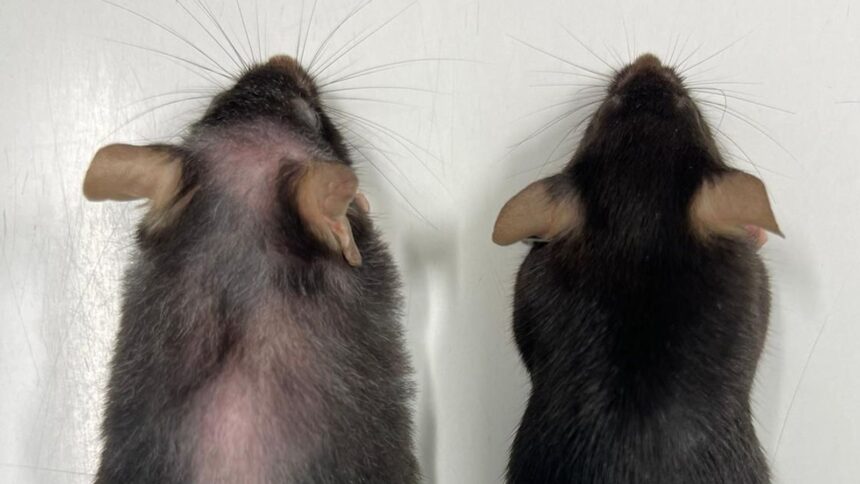The mice were given an injection of an antibody known as anti-IL-11 when they were “middle-aged,” and this treatment decreased the number of cancer-related fatalities.
Additionally, it reduced the frequency of illnesses brought on by fibrosis, persistent inflammation, and impaired metabolism—all of which are indicators of aging.
Senior scientist in the study Professor Stuart Cook stated: “These results are really exciting.
“Even if these results are limited to mice, they create the intriguing potential that the medications could have a comparable impact on old people.
In addition to showing less typical indications of aging and weakness, the treated mice also showed improved muscle strength and less muscle atrophy. They also had fewer malignancies overall.
“In other words, the old mice receiving anti-IL-11 were healthier.”
The scientists’ videos demonstrate how untreated mice developed weight increase, graying patches on their fur, and hair loss.
However, those that received the injection were more active and had glossy coats.
When the mice were 75 weeks old, or the equivalent of 55 years old in human years, the researchers from Imperial College London, the Medical Research Council Laboratory of Medical Science (MRC LMS), and Duke-NUS Medical School in Singapore gave them the antibody injection.







